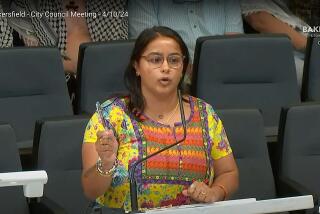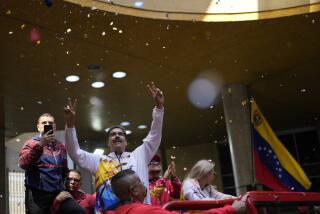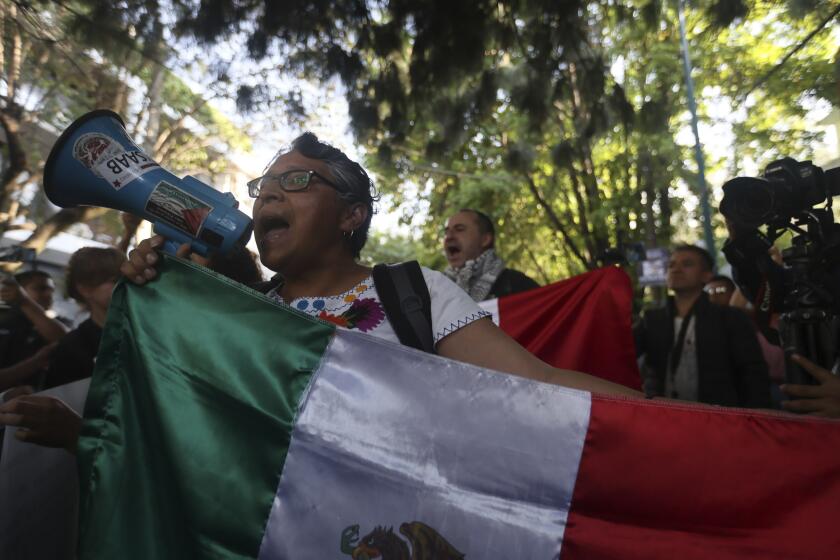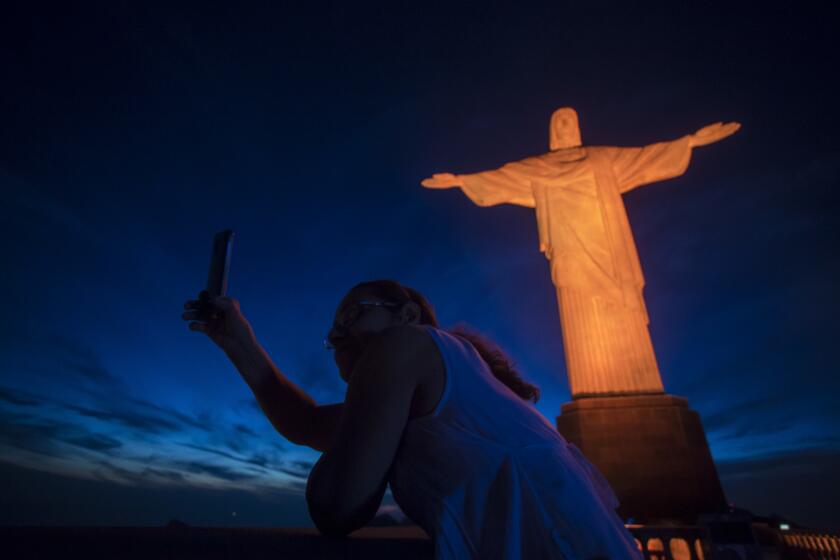Caracas mayor charged with conspiring against Venezuelan government
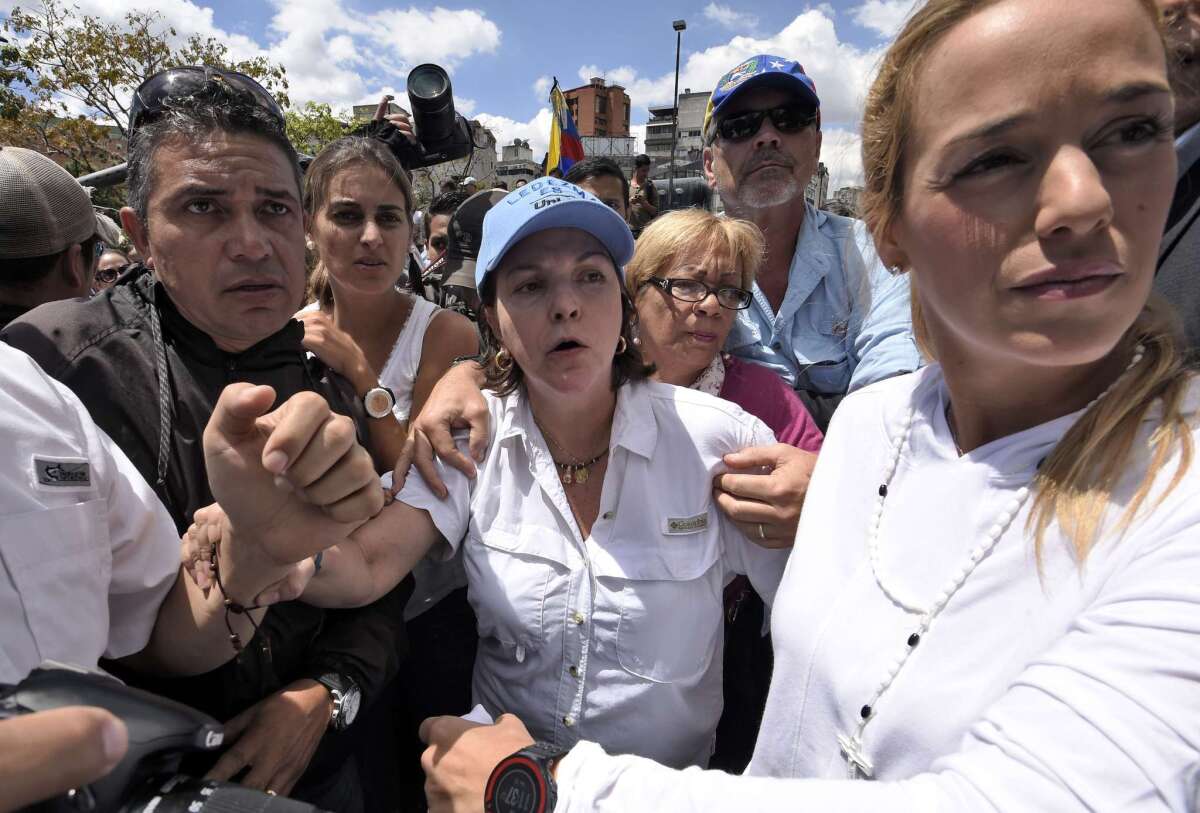
Caracas Mayor Antonio Ledezma was formally charged Friday with “conspiracy to commit violent acts against the state” while fellow opposition leaders described his arrest as a “brutal and unconstitutional” and called on Venezuelans to take to the streets in protest.
Analysts said the surprise arrest Thursday of the 59-year old mayor could mark a more repressive tack by President Nicolas Maduro to squelch dissent. Maduro, who replaced Hugo Chavez as president after Chavez’s death in March 2013, faces increasing public dissatisfaction amid a worsening economy marked by scarcities and high inflation.
Ledezma was being held at the headquarters complex of the National Intelligence Service, Venezuela’s equivalent of the FBI, according to a statement issued by the attorney general’s office Friday. He faces trial for “conspiracy against peace and the constitution,” authorities said.
Leaders of the Democratic Unity opposition alliance scheduled a mass demonstration in Caracas for Friday night and called on protesters to bang pots and pans to protest Ledezma’s arrest. Former National Assembly member Maria Corina Machado asked the Organization of American States to hold an emergency meeting to discuss the “desperate, unconstitutional” arrest of Ledezma.
Machado told reporters that Ledezma’s arrest had “unmasked the military dictatorship of Venezuela” and that the Maduro government was in a “terminal phase.”
A poll conducted last month by the Datanalisis firm put Maduro’s approval rating among Venezuelans at 22%. Approval of the socialist PSUV party, which controls the Venezuelan congress, was 16%. Venezuela’s economy could shrink by as much as 7% this year and annual inflation is now running at 63%.
Luis Salamanca, an attorney and political science professor at Central University of Venezuela in Caracas, said the Ledezma arrest “deepens the dictatorial character of his government” but that it had an electoral purpose ahead of legislative elections later this year.
“Everything is pointing to electoral catastrophe for those in power,” Salamanca said. The arrest “shows Maduro wants to deprive the opposition of its leaders ahead of the elections to weaken it and make it lose focus.”
Another prominent opposition leader, former Caracas borough mayor Leopoldo Lopez, has been in jail for a year on charges of incitement to violence, which several human rights groups have described as unsubstantiated. Machado is also being investigated for similar charges.
There was no indication by midday Friday that demonstrations would compare with those of a year ago when students protesting campus violence sparked nationwide demonstrations that turned violent in some cities. Those protests led to 43 deaths and hundreds of student arrests, of which 64 are still in prison.
In a televised address to followers outside the Miraflores presidential palace Thursday night in which he announced Ledezma’s arrest, Maduro said the arrest was justified by the mayor’s having signed an opposition manifesto earlier this month calling for “national transition” away from the current socialist model and to include social and economic reforms.
Maduro held a copy of the document in his hand and described it as an incitement to a violent overthrow of his government. “He who is behind these overthrow attempts must go to jail. Enough of this impunity,” Maduro told the crowd, referring to Ledezma.
The document which was also signed by Machado and the imprisoned Lopez, urged a three-pronged strategy for rescuing a fraying society and reversing Venezuela’s economic collapse without specifically urging violent means.
The signers called for the hiring of new management for the state-owned and cash-short oil company PDVSA, making consumer goods more readily available and restoring democratic institutions that opposition members say Maduro’s socialist government has trampled on.
Special correspondents Mogollon reported from Caracas and Kraul from Bogota, Colombia.
More to Read
Start your day right
Sign up for Essential California for news, features and recommendations from the L.A. Times and beyond in your inbox six days a week.
You may occasionally receive promotional content from the Los Angeles Times.

